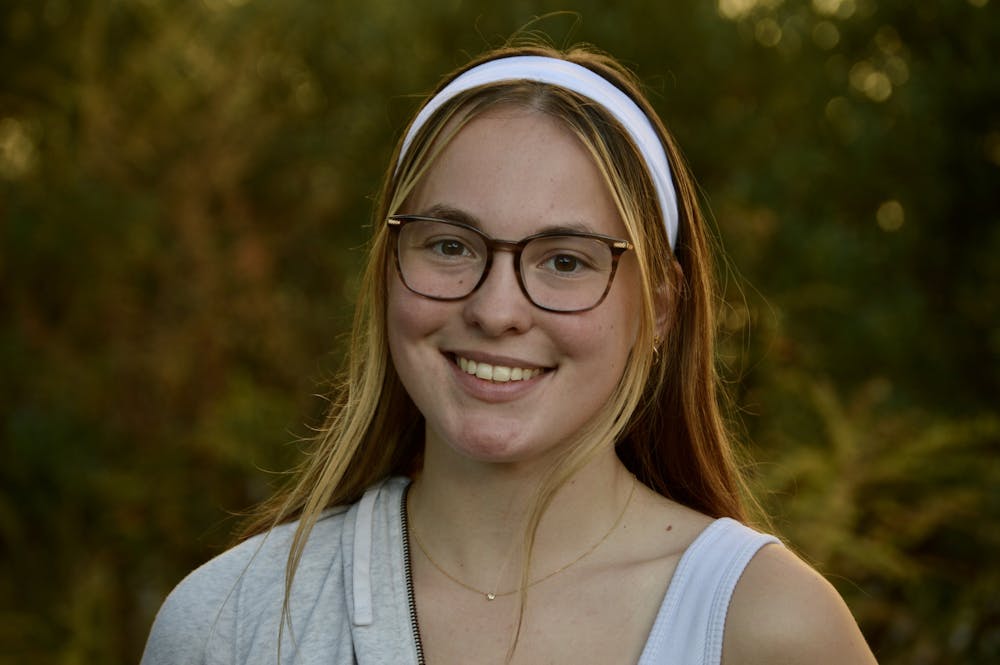The following piece is an opinion and does not reflect the views of The Eagle and its staff. All opinions are edited for grammar, style and argument structure and fact-checked, but the opinions are the writer’s own.
Political partisanship is nothing new in the United States government. Though hyperpartisanship evokes imagery of fights on the floor of Congress, cutthroat national campaigns and high-level political feuds, it has seeped to the local level.
Oftentimes, it is easy to write off the current mass polarization in our nation as the extreme actions and views of a select few at the highest level of government. Yet, as young professionals aspiring to work in and around government, the students of American University — and all citizens, for that matter — must identify and combat the polarization at the local level.
Recently, my mom decided to run for the school board in Warminster, Pennsylvania. As a registered Democrat, she’s filing petitions to appear on both the Democratic and Republican primary ballots because she views the position as nonpartisan. This step is crucial in ensuring she can receive truly nonpartisan support from both Republicans and Democrats and, in turn, represent the entire community. Appearing on both ballots is especially important in a state like Pennsylvania with closed primaries, where voters can only vote for candidates within their registered party.
Though I am undoubtedly biased towards my mom’s campaign, she has many merits that qualify her for the position. She has over twenty years of experience working in early childhood education and elementary education as an occupational therapist. She has volunteered in the school district for well over a decade, and administrators selected her to serve on the hiring committee when the high school in the district was looking for a new principal. Her qualifications are obvious, but a recent interaction made us realize polarization has seeped into this very local election.
While gathering signatures for her bipartisan petition, my mom visited many of our neighbors, campaigning for support. When asking a Republican neighbor for her signature, she refused, citing my mom’s Democratic voter registration. This neighbor, someone our family has known for well over 15 years and considers a friend, could not look past my mom’s title of Democrat in a local race for a position as nonpolitical as a school board member. In the eyes of the neighbor, her party affiliation trumped any relevant experience or character traits she had.
This small example is indicative of a much larger issue. On both sides of the aisle, we are too quick to judge the other party and its members. Politics in this nation has become less about reaching consensus for the benefit of the electorate and more about beating the other side. The partisan animosity toward those with different ideologies is reaching a breaking point and party divides are at a 20-year high.
I share the above example not to shame my neighbor or promote my mother’s campaign. Instead, this interaction provides a great example of combating polarization when the issue feels too massive and daunting for any normal individual to address.
Though much of the extreme partisanship currently plaguing this nation is the fault of party higher-ups, polarization happens at all levels. We cannot easily change the minds of party leadership, but we can work on having an open mind toward members of our communities who may see things a little differently politically.
While I am arguing for consensus between people of different parties, I am not advocating for tone-deaf love of the opposite party. Finding a compromise — or at least seeing another’s perspective — on a local policy initiative is very different than doing so with the issues and divisions happening on a federal level.
For example, I don’t suggest that Democrats should try to support President Donald Trump if his beliefs don’t align with their own. Rather, finding support, or even just respect, for local-level public servants is the point I am illustrating. It is likely much easier to find consensus over two slightly different budget proposals for your small hometown than to try to agree with the party’s sensationalized, national-level policy platforms, opposite your own.
I urge you to step out of your comfort zone. Talk with your neighbor about why they support a different candidate than you, go to campaign events that you would usually tune out, embrace differences of opinion and strive to find understanding. Don’t be afraid to vote for who you see as the best candidate, even if they do not identify with your party.
Change starts locally, with everyday citizens, not with high-profile politicians. The fight against hyperpartisanship starts with each and every one of us and our decision to find common ground in local politics.
Addie DiPaolo is a junior in the School of Public Affairs and a columnist for The Eagle.
This article was edited by Quinn Volpe, Alana Parker and Walker Whalen. Copy editing done by Luna Jinks, Olivia Citarella, Emma Brown and Nicole Kariuki.





